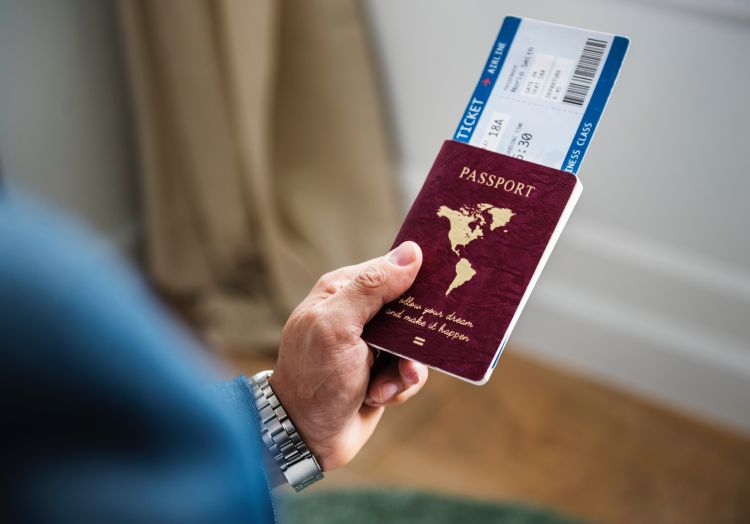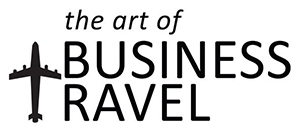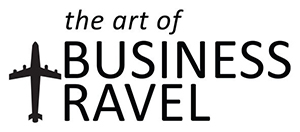
We talk travel security and risk prevention in the post-Covid era with Adrian Leach, CEO of World Travel Protection.
As travel prepares for its post-Covid return, business travellers will need to be mindful of a host of potential dangers and challenges as they hit the road again. In addition to the logistical challenges of post-Covid travel, the economic fall out from the global pandemic has created its own problems, and business travellers and travel managers will need to be mindful of the risks their employees take as they travel once again. Nick Walton discusses the security threats and challenges of business travel’s new norm with World Travel Protection CEO Adrian Leach.
In the Covid and post-Covid period, travellers will be more aware of the risks than ever before. What are the major risks facing business travellers today and how will the travel experience change post-Covid?
As economies become more depressed and people have either lost jobs or had their working hours reduced, they’ll be looking for new avenues to make money. Business travellers could be the biggest targets in countries where leisure travel is suspended as they’re among the few people still visiting. Specific frauds related to Covid-19 have included criminals posing as WHO officials asking for personal details, which they then later exploit. While business travellers are exposed to fraud, in destinations where the inherent risk associated with corruption and street crime is already high, we can expect to see this type of activity increase, as well as hotel room theft, and possibly kidnappings.
In terms of the travel experience changing post-Covid, it’s highly likely that vaccination certificates, or similar passport documentation, will be needed for international travel. The International Air Transport Association (IATA) is currently trialling a Travel Pass with major airlines, which stores verified Covid-19 test or vaccination results on a traveller’s mobile device. The European Union (EU) has just released its guidelines on a Digital Green Certificate for movement around EU Member States, and we expect other jurisdictions to introduce similar initiatives with some cooperation with the WHO.
Business travel will require more planning in terms of arranging documentation, assessing risk and how to manage those risks. Human contact will continue to be minimised via online check-ins.

Much has been discussed about the decline of corporate travel. What are your predictions for the business travel industry in the next few years and what are the major challenges the industry will need to overcome?
The timeframe for international travel returning could take longer than many people think, as countries such as the United States and the United Kingdom take longer to vaccinate their larger populations. For example, the Australian Federal Government Department of Health Secretary Brendan Murphy has previously said Australians are likely to be blocked from most international travel until at least 2022.
When international travel does resume, we predict countries with successful vaccination programs – such as New Zealand, Israel and the United Arab Emirates – will be the first to be in a position to establish travel corridors with countries with strict Covid border policies. Because of the extra logistics involved in travelling, business trips may be of a longer duration and meetings may change to Covid-safe hubs such Connect@Changi in Singapore, a dedicated facility that currently allows business travellers to stay and conduct meetings without having to serve quarantine on arrival.
Major industry challenges include the safety of products and services being compromised as a result of travel having been on hiatus. The impact that Covid-19 has had on supply lines means that some companies had to purchase items from alternative producers. This procurement was often done without the ability to inspect and ensure quality control. Some organisations and activities require significant oversight and auditing and with travel off the cards, these processes have been impacted.

The aviation industry has been hit hard by a lack of travellers but it has also meant that the pilots have not been able to fly the appropriate qualifying hours and stay current for the variety of airframes and types of activities they may be called on to fly.
Business travel may require an extra investment for businesses in terms of risk management, and we anticipate increases in flight and accommodation costs with travel operators looking to recoup losses from the pandemic as well as rising costs related to maintaining a Covid-safe environment.
There will have been plenty of business travellers who were forced to continue travelling through the global pandemic. What experiences have you heard from your clients about those journeys?
We have learned a lot from our business travellers who have still needed to travel during Covid-19. Mining, agriculture and some construction activity have been seen as critical and governments have helped to facilitate their continued operations. These travellers have become adept at adjusting to changes and restrictions posed by those destinations to which they are travelling. World Travel Protection has supported travellers working with mining operations in West Africa mid-trip when new restrictions were put in place after the traveller had left their home country. Providing these travellers with accurate and timely intelligence has been critical in ensuring they reach their destination with minimal stress.
What are the most important elements in terms of travel risk aversion, that business travellers should be aware of as travel recommences? What risks remain very real other than Covid-19?
Educating business travellers on the inherent risk of the destination they are going to is critical. A risk-assessed Travel Risk Management program, focused on the traveller, the destination and the activity being conducted, is critical in ensuring we have captured all pertinent risks and the traveller is educated in the actions they need to follow to stay safe.

The same risks as we saw prior to the pandemic still exist, such as travelling to countries with political unrest. World Travel Protection offers specific training for organisations and their employees depending on the travel destination. This includes Active Shooter Safety Training, Female Traveller Safety Training, LGBTQ+ Travel Awareness Training and Global Road Safety Training.
How is technology helping travellers minimise those risks? Is technology also increasing the risks faced by business travellers?
World Travel Protection’s Travel Assist Portal can help travellers minimise risk. It’s a multi-million-dollar innovation we developed last year to enhance our core capability. It provides Covid-19 specific information by country, updated every 24 hours to provide the greatest level of relevance for users, including all the restrictions applied by local governments, border closures, and international flight requirements. It enables the WTP team to monitor clients across the globe in real-time against critical global intel such as natural disasters and terrorist attacks. The WTP team has the capability to send alerts in the event of an incident, and the ability for travellers to respond back to our Command Centres for ongoing support and management, including medical assistance.
In the first six months of 2020, we witnessed more cyberattacks than in the whole of 2019. Cybercrime and fraud-related crime now make up more than 50% of all reported criminal activity. Cybercriminals have been quick to adjust to the prevailing legislative environment and have capitalized on Covid specific restrictions. Cybercriminals have impersonated official medical and government institutions and have leveraged the confusion and hysteria often found when communities are faced with tighter restrictions being applied.
In addition, the use of QR codes in restaurants, workplaces and public transport has provided a gateway for cybercriminals to access hand-held devices. Business travellers usually rely on the internet to answer emails and conduct online meetings, typically while logged into unfamiliar Wi-Fi hosts in airports and hotels that may not be secure. If breached, companies risk the employee’s personal details being captured as well as potentially sensitive corporate information.

What can companies do to safeguard their own staff in the post-Covid era?
Organisations need to review their travel risk management policies to ensure they are traveller focused, risk assessed and compliant with international and local health and safety legislation and Covid-specific restrictions. Consider all aspects of the trip, including any stopovers and the implications, should travel restrictions change. Companies can, of course, engage a specialist provider such as World Travel Protection, to manage this process.
Knowledge is the best defence, and businesses should be upskilling their staff and equipping them with the information to protect themselves. Many businesses, particularly SMEs, don’t necessarily have the resources to identify threats and make informed decisions that enable travel to continue. Our corporate clients are able to access our Travel Assist Risk Management Portal and read up-to-date information provided by our analysts, which they can then take away and incorporate into their own risk-management processes.
It’s more important than ever to maintain a low profile and ensure that your tech is protected, and companies may also look at enforcing a compulsory vaccine policy for staff to be able to travel internationally for work.
Adrian Leach is the CEO of World Travel Protection (WTP) and oversees a team of medical, security and logistics professionals who assist people when they’re a long way from home and in need. With a background in operations and senior management roles, Adrian previously worked with International SOS and Linfox Australia. His well-rounded education in both Australia and the U.S. included economics, management development and science. He’s passionate about providing a safer experience for business travellers, with WTP also offering specialised training for clients’ employees specific to their needs and destinations, such as Female Traveller Safety Training.
For more expert commentary check out our Mile High Club section here.





